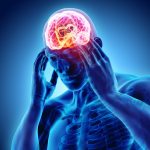The Truth About Aging: Degeneration vs. Regeneration
Nobody lives forever, but aging doesn’t have to be fraught with illness and infirmity. There are many factors that play a part in how you age, and the more science understands the biology of aging, the more control we have over our own fates.
Sure, it’s still impossible to look twenty-five if you’re fifty, but there’s no reason that you can’t slow the aging process and look and feel much younger than you really are – it’s all a matter of maintaining balance within your body.
So, if that’s the case, then why do we still have so many of the diseases and age-related illnesses? Because modern Western Medicine tends to work on the result – the illness – instead of proactively working to prevent it to begin with.
Think of your body as an ecosystem. Everything in it has a function, and if any of those functions are disrupted, that the entire ecosystem is affected. The ecosystem that is your body is pretty resilient; if one part is off-kilter, other systems will jump in to pick up the slack. That’s when you hit the slippery slope, though.
Your body can only manage so many imbalances before it starts to fail, and you need to do your part to give it what it needs. That means that in order to maintain that fragile balance that is perfect health, you have to take care of your body. You have to be proactive!
The Biggest Factor Affecting how You Look
Everybody is looking for the fountain of youth – every age cream promises it. Health supplements reel you in with the vow that if you just take that pill or powder, you’ll feel younger and look better. That’s because nobody wants to be old and sick.
The real secret, though, is that getting old is a simple equation. Your body is degenerating faster than it’s regenerating. Though genetics certainly play a role, how well you take care of your body is a much bigger deal than what your parents passed down to you.
Even if you’re genetically predisposed to a disease, if you exercise and give the body the rest and nutrition that it needs, it will be better able to defend against disease even if you do get sick. The biggest factor affecting how you look and feel is you!
Now that you know that, let’s move on and talk about the mechanics of the aging process for a bit.
The Correlation between Aging and Illness
Aging and illness aren’t the same things, though they do influence each other. Aging is the physical act of getting older; your skin gets thinner, your hair turns grey, and you get wrinkles. Illness, on the other hand, can affect us at any age. Illness occurs when the delicate balance in your inner ecosystem is disrupted to the point that other systems can no longer compensate, regardless of your age.
Of course, as you age, cells begin to die. One of the main causes of cell death is excess free radicals. These are actually oxygen cells that have split into single atoms with unpaired electrons because of oxidation. The missing electron makes them unstable. Since all atoms seek stability, these damaged ones will latch onto healthy, stable electrons thus damaging those cells, proteins, and even DNA strands.
Free radicals are associated with nearly all human diseases, including cancer, atherosclerosis, heart disease, Alzheimer’s disease, Parkinson’s disease, arthritis, and many others. Aging is actually defined by some as the gradual accumulation of damage caused by free radicals.
So, it seems logical that the best thing to do is avoid whatever it is that causes our cells to oxidize and create free radicals, right? Well, yes. That would certainly seem to be the answer, and many causes, such as pesticides, fried foods, contaminated water, smoking, drinking in excess, and getting too much sun are certainly within our control, at least mostly.
The bad part is that free radicals are also caused by biological processes such as breathing and converting food to energy. Think of them as waste products created by chemical reactions, sort of like car exhaust. For that matter, our bodies even need a certain amount of free radicals because they circulate through our bodies and attack invading cells that cause illness and disease. They’re an essential part of the immune system.
Still, as is the case in many instances, moderation is key. You don’t want too many free radicals, and honestly, no matter what you eat or do, you’re never going to reach a state where you have too few free radicals, so do what you can to prevent them, or get rid of them.
A way to live longer: minimizing the risks of diseases and supporting the cellular regeneration process
The good news is that, as we already discussed, our bodies are resilient. We were built to be healthy and, since that’s our natural state, we have many defenses to keep us that way. Many of our organs and systems can actually grow new cells to replace the ones that are damaged. This is called cellular regeneration.
Of course, you need to do what you can to help the process along. This goes back to that whole “keeping the body balanced” thing again. That should always be your goal – balance.
5 natural ways to stimulate this process
Maintaining balance sounds great, but how do you do it? Well, if it were easy, we’d all live to be two hundred. The best way to keep your body healthy is to start young. However, unless somebody’s built a time machine recently, there are no do-overs.
That’s okay – as long as you’re still breathing, you can take proactive steps to promote healthy cellular regeneration and reduce damage done to your body by free radicals.
1. Stop Smoking!
Yes, this is a tough one, especially if you’ve been a smoker for a long time. But, just imagine what every mouthful of smoke is doing. Every single puff is quite literally killing you, a handful of free radicals and a thin layer of tar at a time. It’s just a matter of what will get you first – the damage done by the free radicals (including cancer), or the emphysema and other breathing disorders caused by the tar.
Stub it out and don’t light another one. Many states even offer free programs to help you.
2. Adjust your diet
You’d be surprised by how easy it is to change your diet if you do it in baby steps. The first step is to add foods rich in antioxidants. Fruits – berries and citrus fruits in particular – are packed with antioxidants, including vitamin C, that attach to the free radicals, disable them, and carry them out of the body.
Fruits and veggies high in antioxidants are foods with rich colors – the oranges and reds and dark greens. Here are a few:
- Tomatoes
- Carrots
- Broccoli
- Kale
- All berries
- Nuts, particularly pecans and walnuts
- Kidney beans
- Artichokes
- Dark chocolate (not milk chocolate – the darker the better!)
- Pumpkin seeds
Now that you know what to add, you probably need to get rid of a few things. Fried foods are horrible. So are foods with trans fats, which are “fake” fats. These include margarine, potato chips, and most other junk foods. Processed foods also need to go because the chemicals and preservatives in them cause free radicals.
Basically, eat fresh, organic fruits and veggies, organic meats, nuts, seeds, beans, and fresh herbs. Avoid junk. Nobody expects you to give up everything, but shoot for eating clean at least eighty percent of the time. Indulge the other twenty percent.
3. Sleep
There are tons of research studies that link sleep deprivation with free radical buildup. On the flip side, while you’re sleeping, your body is producing less natural free radicals and working to clean house and repair and regenerate cells. It’s imperative on many levels for you to get plenty of healthy sleep.
4. Relax
Stress is a huge producer of free radicals. It also contributes in other ways, such as perpetuating bad eating habits and inhibiting healthy sleep. Stress is right up there with smoking when it comes to things that will kill you. Meditate, take a walk, exercise, breath deeply, walk the dog, play with the kids: do whatever it is that creates a stress-free zone for you, every day.
5. Detoxify
We all eat things that aren’t bad for us. Our foods and even our environment contain toxins such as chemicals, heavy metals, artificial ingredients, pollutants, and a wide variety of other poisons that harm us and keep our bodies from remaining in balance. There are even toxins such as heavy metals found naturally. They just exist, and our bodies absorb them.
Unfortunately, detoxifying has become a sort of catch-all buzzword that means everything from fasting to flushing your colon. If you’re looking for less radical ways to detoxify, start with your diet. Follow the steps above, and check out other natural supplements and methods to see if any suit you.
Some that I personally find useful are vitamin C supplements, drinking tons of water to flush out toxins, and using resveratrol – I take it as a supplement to fight free radicals inside, and also crush a pill up and add it to coconut oil to make my nightly face, neck, and décolletage cream to fight free radicals on the outside. Love it.
Colloidal gold is also gaining traction as a means to balance the body and promote cellular regeneration. The science is there, but it’s a new (to Westerners, anyway) practice that’s just starting to be discussed. The effects of its sister, colloidal silver, are indisputable, but gold is like the shy twin – it’s just as amazing, but not as popular.
Your body is made up of electricity – we know that for a fact. Colloidal gold is being researched for its ability to promote cellular regeneration and improve cognitive functioning, as well as help with conditions related to cellular degeneration such as arthritis.
There are two methods of using colloidal gold, and the most popular way is to ingest it. The other way is to wear it in a type of battery. I’ve only just started researching this method, but the Association for Research and Enlightenment in Virginia Beach, examined it.
The idea is that the colloidal gold, stored in a form of self-charging battery, works with the energies in your body to draw energy from parts of your body that has plenty and recirculate it back through your system to promote cellular regeneration. Results were promising.
Though the research on this is still new, the effects of colloidal gold are not. To know more about colloidal gold therapy read more information here.
Nobody wants to look and feel old, or become sick because of the effects of aging, and promoting cellular regeneration is one of the best forms of attack that you can use to stay healthy, feel great, and maintain a youthful appearance.
It’s never too late to do great things for your health, but the earlier you start, the more you have in your favor. Take care of your body – it’s the only one you get!

This work is licensed under a Creative Commons Attribution-NonCommercial-NoDerivatives 4.0 International License.

 Previous Post
Previous Post Next Post
Next Post



